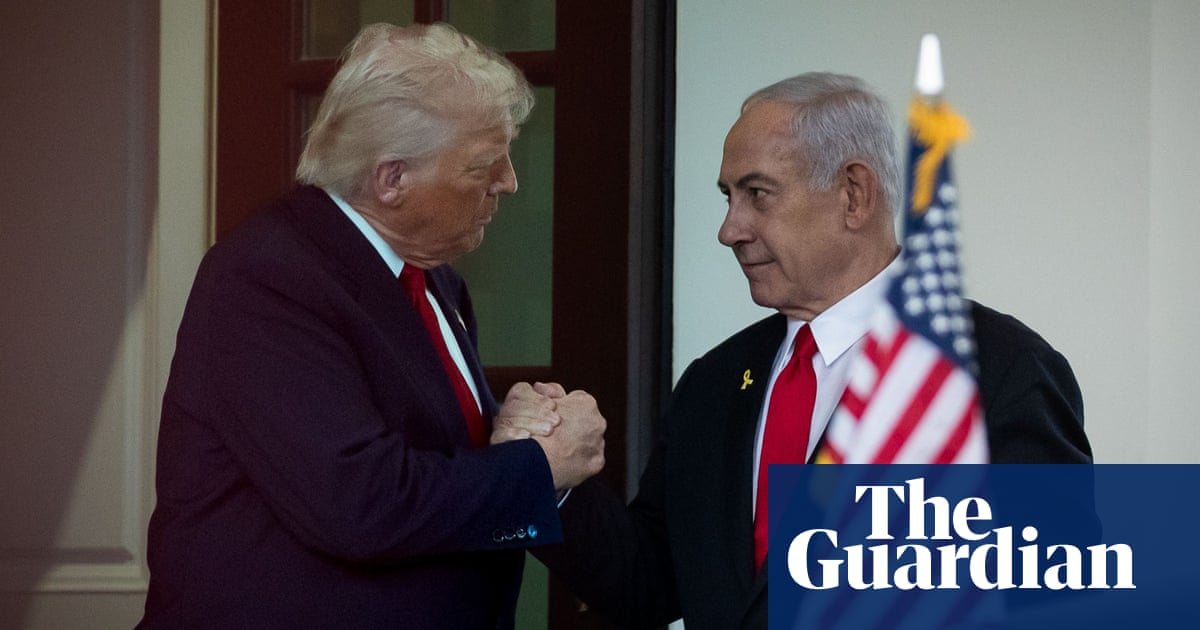When he was elected, Donald Trump suggested he could hammer out a new relationship withBenjamin Netanyahu, the Israeli prime minister who was used to getting his way with the White House. But after just over 150 days in office, it appears Trump has fallen into the same trap as his predecessors – and launched the most consequential strike on Iran in generations.
From early suggestions that theTrump administrationwould rein in Netanyahu’s military ambitions, it now appears that the Israeli PM has manoeuvred the US into striking Iranian uranium enrichment sites directly after a series of military attacks that Washington was unable to deter the Israeli PM from. And the US is now bracing for a retaliation that could easily bring it into a full-scale war.
Days before his inauguration, Trump’s envoy to the Middle East Steve Witkoff barrelled intoIsraelwith a demand to meet Netanyahu on Shabbat in order to strongarm him into negotiating a ceasefire deal with Hamas in Gaza.
Senior officials at the time chalked that up to the “Trump factor” – a reference to the unpredictability and dealmaking prowess of the US president – which could provide a decisive edge in dealing with the forceful Israeli PM.
While Netanyahu had been able to manoeuvre previous administrations into supporting his military adventures in the region, some critics of Israel began to laud Trump for his ability to resist Netanyahu’s pull.
But after the events of Saturday – when US B-2 bombers pounded targets inIranfor the first time since Israel began to launch strikes last week – it was clear that Trump’s intuition had changed. Members of his inner entourage also shifted from a Maga isolationist approach to foreign policy to a more hawkish stance.
Trump’s public aversion to war and his promises as a candidate not to embroil the US in further conflicts abroad was evaporating less than 200 days after he came into office.
When he appeared in public, Trump sought to put rumours of a troubled relationship with Netanyahu to rest. And he tried to show that US policy was in lockstep with Israel, rejecting suggestions that Israel had blindsided the US by pursuing an aggressive bombing campaign against Iran.
“I want to thank and congratulate Prime Minister Bibi Netanyahu,” Trump said. “We worked as a team like perhaps no team has ever worked before, and we’ve gone a long way to erasing this horrible threat to Israel.”
It was a far cry from the initial US reaction to Israeli bombing raids on targets in Iran, when the secretary of state, Marco Rubio, called the strikes “unilateral” and said the US was “not involved in strikes against Iran and our top priority is protecting American forces in the region”.
What a difference a week makes. The US now appears to have fully endorsed the Israeli strikes and joined the attack, potentially setting the stage for a series of escalations that could lead to a new war in the Middle East.
What does this mean for the future? Trump has claimed in public and private that the US strikes on the Fordow, Natanz, and Esfahan enrichment sites were one-off missions and could be contained. US forces in the Middle East have been warned of the potential for Iranian retaliation attacks, and Trump has warned Tehran that the US is ready to carry out further strikes if it is targeted directly.
Yet his own administration officials, including the vice-president, JD Vance, have warned of the potential for a limited strike to creep into a longer-term mission in Iran if Tehran retaliates.
For now, Trump continues to try to tread a middle ground, launching strikes but suggesting that he can prevent an escalation leading to a protracted war.
Yet the key US ally in the Middle East appears only emboldened by Trump’s raid.
“Congratulations, President Trump, your bold decision to target Iran’s nuclear facilities with the awesome and righteous might of the United States will change history,” Netanyahu said in a video statement.
